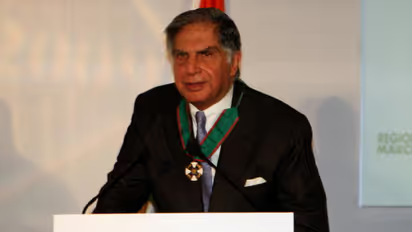Ratan Tata passes away: Understanding the Parsi tradition of last rites; details of rituals here
Published : Oct 10, 2024, 02:50 PM IST
Ratan Tata's last rites will be performed according to Parsi traditions, which involve unique practices like the use of Towers of Silence ('Dakhma') where bodies are exposed to the elements and scavenging birds. However, modern adaptations like solar concentrators and electric cremation are also becoming more common.
Stay updated with the Breaking News Today and Latest News from across India and around the world. Get real-time updates, in-depth analysis, and comprehensive coverage of India News, World News, Indian Defence News, Kerala News, and Karnataka News. From politics to current affairs, follow every major story as it unfolds. Get real-time updates from IMD on major cities weather forecasts, including Rain alerts, Cyclone warnings, and temperature trends. Download the Asianet News Official App from the Android Play Store and iPhone App Store for accurate and timely news updates anytime, anywhere.
Read more Photos on
